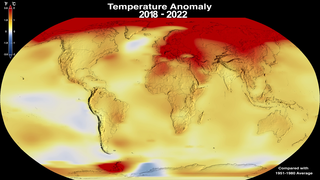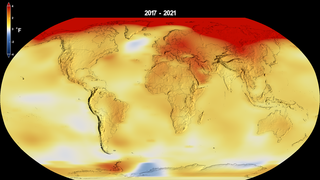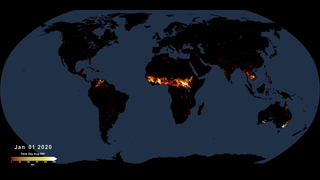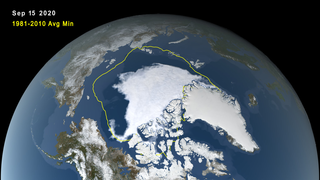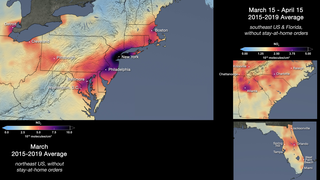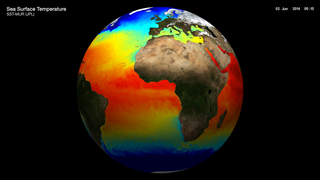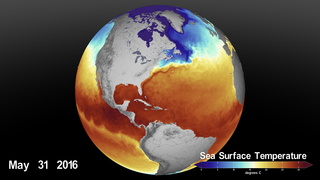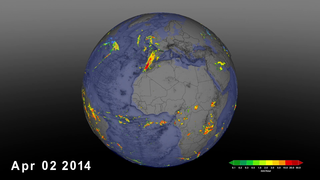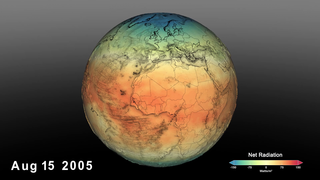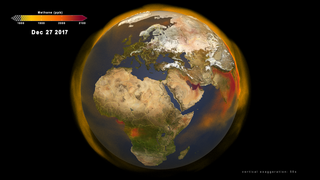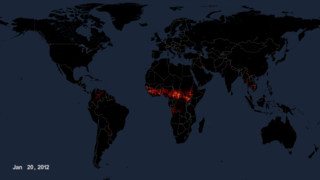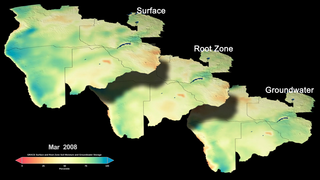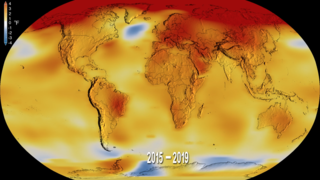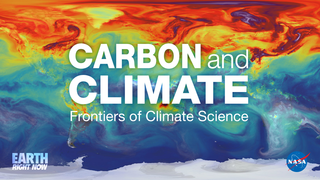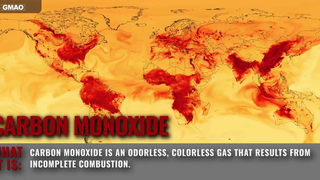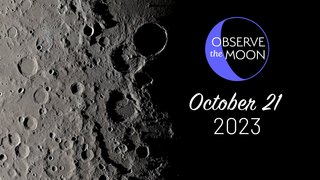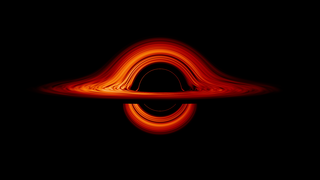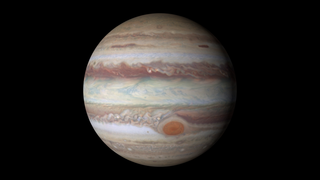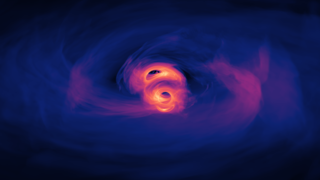Earth
ID: 13799
Globally, 2020 was the hottest year on record, effectively tying 2016, the previous record. Overall, Earth’s average temperature has risen more than 2 degrees Fahrenheit since the 1880s.
Temperatures are increasing due to human activities, specifically emissions of greenhouse gases, like carbon dioxide and methane.
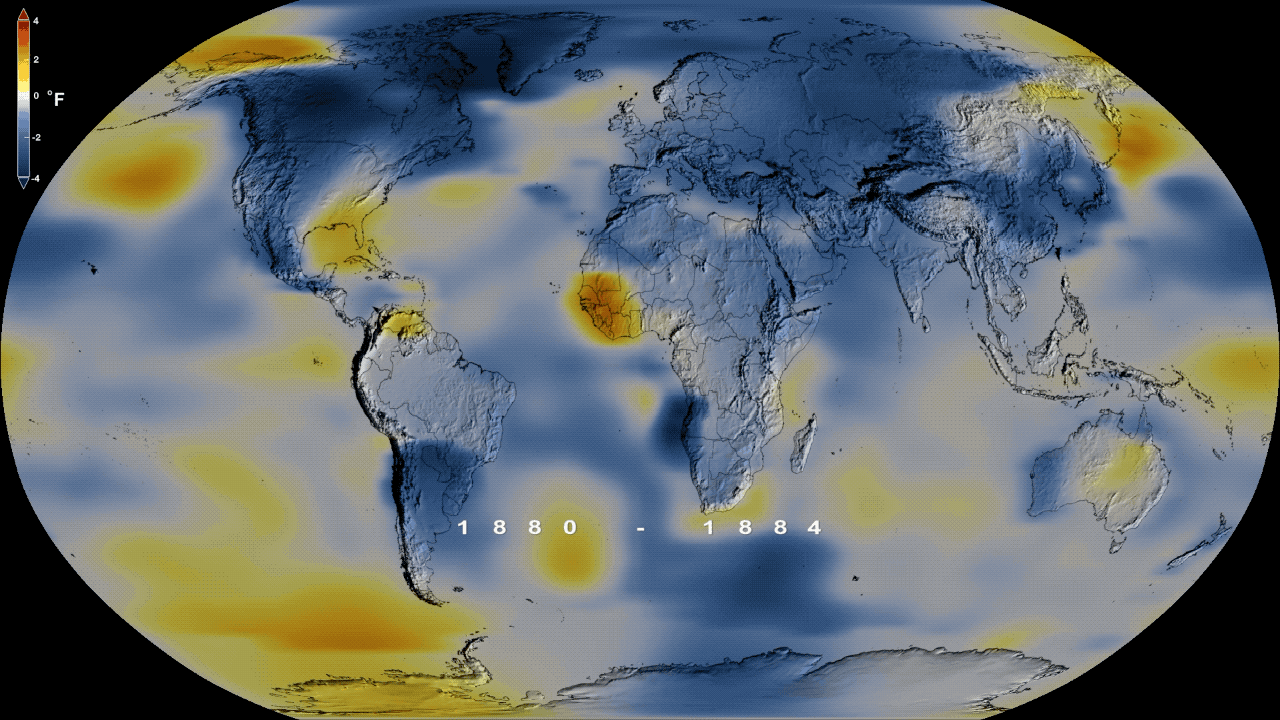
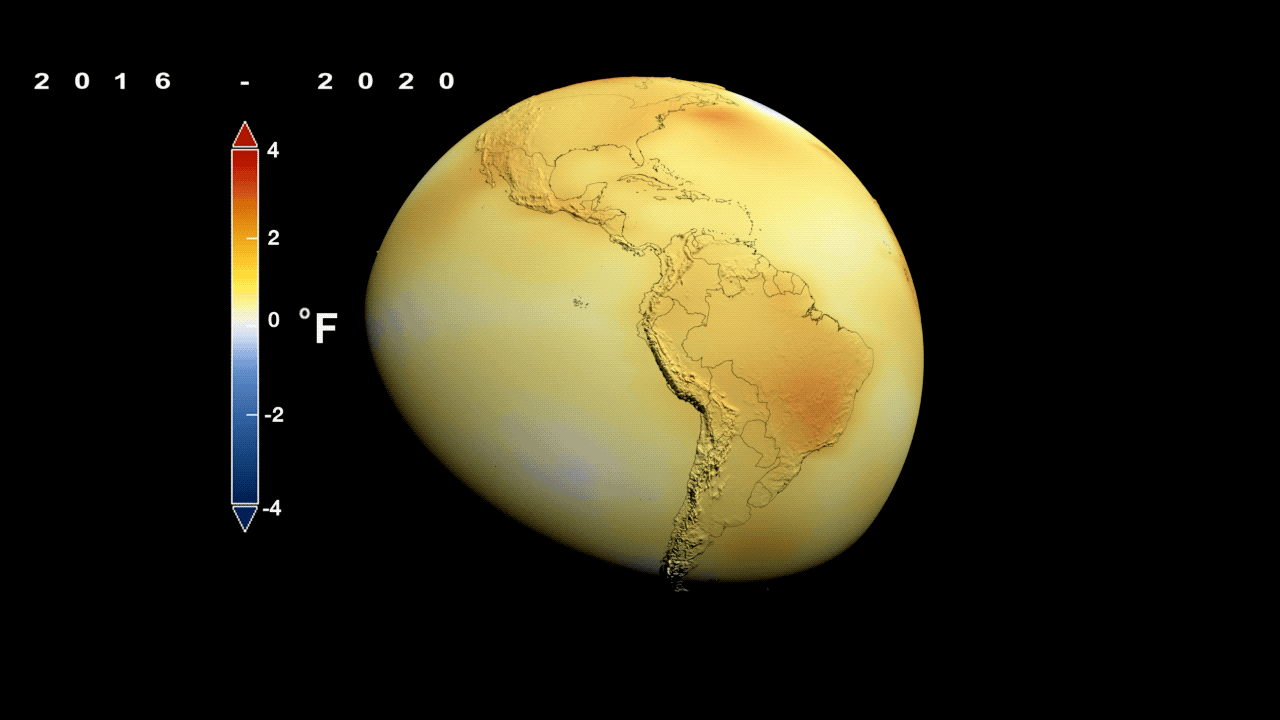

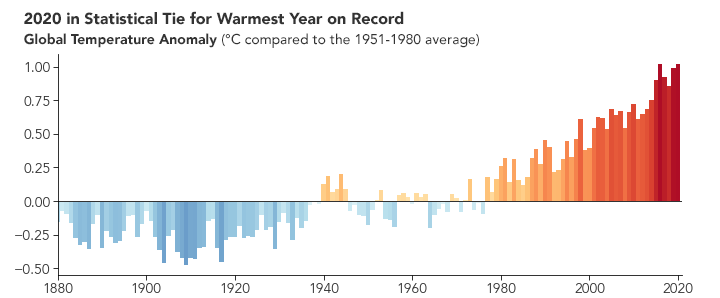
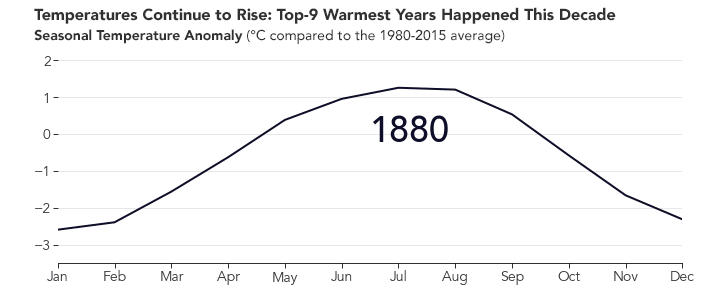

NASA Finds 2020 Tied for Hottest Year on Record
Temperatures are increasing due to human activities, specifically emissions of greenhouse gases, like carbon dioxide and methane.






Source Material
Alternate Versions
Related
Credits
Kathryn Mersmann (USRA): Lead Producer
Katie Jepson (USRA): Lead Producer
Jessica Merzdorf (Telophase): Lead Writer
Sofie L. Bates (Intern): Lead Writer
Peter H. Jacobs (NASA/GSFC): Public Affairs Officer
Gavin A. Schmidt (NASA/GSFC GISS): Lead Scientist
Lesley Ott (NASA/GSFC): Scientist
Lori Perkins (NASA/GSFC): Lead Visualizer
Trent L. Schindler (USRA): Visualizer
Jefferson Beck (USRA): Producer
Kathleen Gaeta (GSFC Interns): Producer
Jacob Richmond (NASA/GSFC): Public Affairs Officer
Joshua Stevens (SSAI): Data Visualizer
Katie Jepson (USRA): Lead Producer
Jessica Merzdorf (Telophase): Lead Writer
Sofie L. Bates (Intern): Lead Writer
Peter H. Jacobs (NASA/GSFC): Public Affairs Officer
Gavin A. Schmidt (NASA/GSFC GISS): Lead Scientist
Lesley Ott (NASA/GSFC): Scientist
Lori Perkins (NASA/GSFC): Lead Visualizer
Trent L. Schindler (USRA): Visualizer
Jefferson Beck (USRA): Producer
Kathleen Gaeta (GSFC Interns): Producer
Jacob Richmond (NASA/GSFC): Public Affairs Officer
Joshua Stevens (SSAI): Data Visualizer
Please give credit for this item to:
NASA's Goddard Space Flight Center
NASA's Goddard Space Flight Center
Short URL to share this page:
https://svs.gsfc.nasa.gov/13799
This item is part of this series:
Narrated Movies
Keywords:
DLESE >> Atmospheric science
SVS >> Climate
SVS >> HDTV
DLESE >> Human geography
DLESE >> Natural hazards
SVS >> Sea Ice
SVS >> Temperature
SVS >> Temperature Trend
GCMD >> Earth Science >> Climate Indicators
GCMD >> Earth Science >> Atmosphere >> Atmospheric Phenomena >> Hurricanes
GCMD >> Earth Science >> Human Dimensions >> Natural Hazards >> Fires
SVS >> Global Temperature
NASA Science >> Earth
GCMD keywords can be found on the Internet with the following citation: Olsen, L.M., G. Major, K. Shein, J. Scialdone, S. Ritz, T. Stevens, M. Morahan, A. Aleman, R. Vogel, S. Leicester, H. Weir, M. Meaux, S. Grebas, C.Solomon, M. Holland, T. Northcutt, R. A. Restrepo, R. Bilodeau, 2013. NASA/Global Change Master Directory (GCMD) Earth Science Keywords. Version 8.0.0.0.0
https://svs.gsfc.nasa.gov/13799
This item is part of this series:
Narrated Movies
Keywords:
DLESE >> Atmospheric science
SVS >> Climate
SVS >> HDTV
DLESE >> Human geography
DLESE >> Natural hazards
SVS >> Sea Ice
SVS >> Temperature
SVS >> Temperature Trend
GCMD >> Earth Science >> Climate Indicators
GCMD >> Earth Science >> Atmosphere >> Atmospheric Phenomena >> Hurricanes
GCMD >> Earth Science >> Human Dimensions >> Natural Hazards >> Fires
SVS >> Global Temperature
NASA Science >> Earth
GCMD keywords can be found on the Internet with the following citation: Olsen, L.M., G. Major, K. Shein, J. Scialdone, S. Ritz, T. Stevens, M. Morahan, A. Aleman, R. Vogel, S. Leicester, H. Weir, M. Meaux, S. Grebas, C.Solomon, M. Holland, T. Northcutt, R. A. Restrepo, R. Bilodeau, 2013. NASA/Global Change Master Directory (GCMD) Earth Science Keywords. Version 8.0.0.0.0
